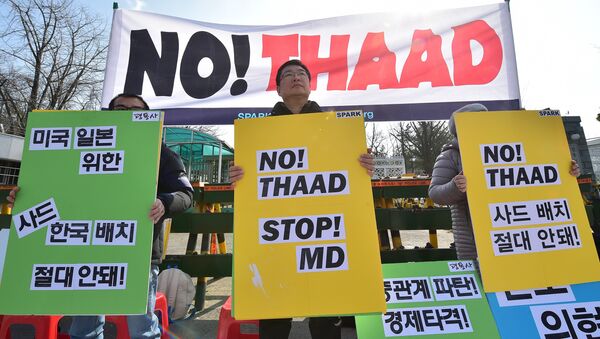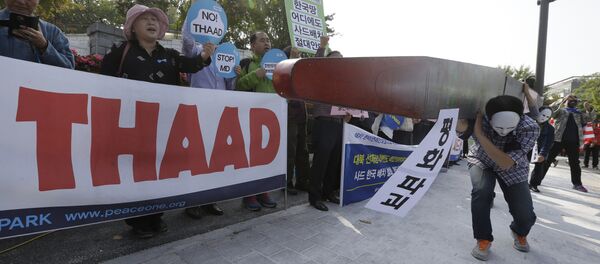This was a result of an unofficial travel ban by the Chinese government in response to Seoul’s reluctance to abandon the THAAD deployment plan. In fact, no official ban was imposed, but the government did not recommend visiting South Korea. Despite being unofficial, the recommendation immediately came into force.
This is the most serious measure Beijing has taken, in a bid to retaliate to Seoul over the THAAD issue. The decision on the US missile defenses deployment was made in summer 2016, as a response to Pyongyang’s increased nuclear efforts. Despite the declared goal of protecting South Korea from possible aggression from its northern neighbor, the move was regarded by China as outrageous.
"However, the more serious reason may be the precedent itself of deploying a US missile defense near China’s border. Despite the fact that the systems planned to be deployed to South Korea are not configured to intercept Chinese missiles, in the long-run this move may pose a threat to Beijing’s deterrence potential," an article on the Russian online publication Lenta.ru read.
As a result, China resorted to decisive actions. Beijing has been the only country to impose restrictions against both Seoul and Pyongyang. As for South Korea, those restrictions can be very serious, taking into account the fact that trade with China accounts for nearly 25 percent of Seoul’s overall turnover.
The heaviest blow was delivered to South Korean trade, food and service conglomerate Lotte Group. The company reached an agreement to provide its golf course for the THAAD deployment, in exchange for a state-owned plot of land.
In China, Lotte owns a chain of large supermarkets which have been targeted by Chinese authorities. By the beginning of March, 23 stores were closed, officially due to violations of fire safety and sanitary norms.
"Beijing cannot ease its grip on Seoul, and the pressure on South Korea is likely to grow. Restrictions can get even stricter if the new South Korean government does not revise plans over THAAD. There are already discussions on banning a wide range of South Korean goods, from cosmetics to automobiles. It cannot be ruled out that if sanctions get comprehensive and their effect is visible Seoul could make concessions," the article read.
"The sanctions are unofficial, but they really exist, even without an official declaration. They render impossible any claims and appeals from the targeted side, while making Beijing’s actions more flexible. Probably, they could become an important tool of China’s diplomacy," the article concluded.
Never miss a story again — sign up to our Telegram channel and we'll keep you up to speed!






